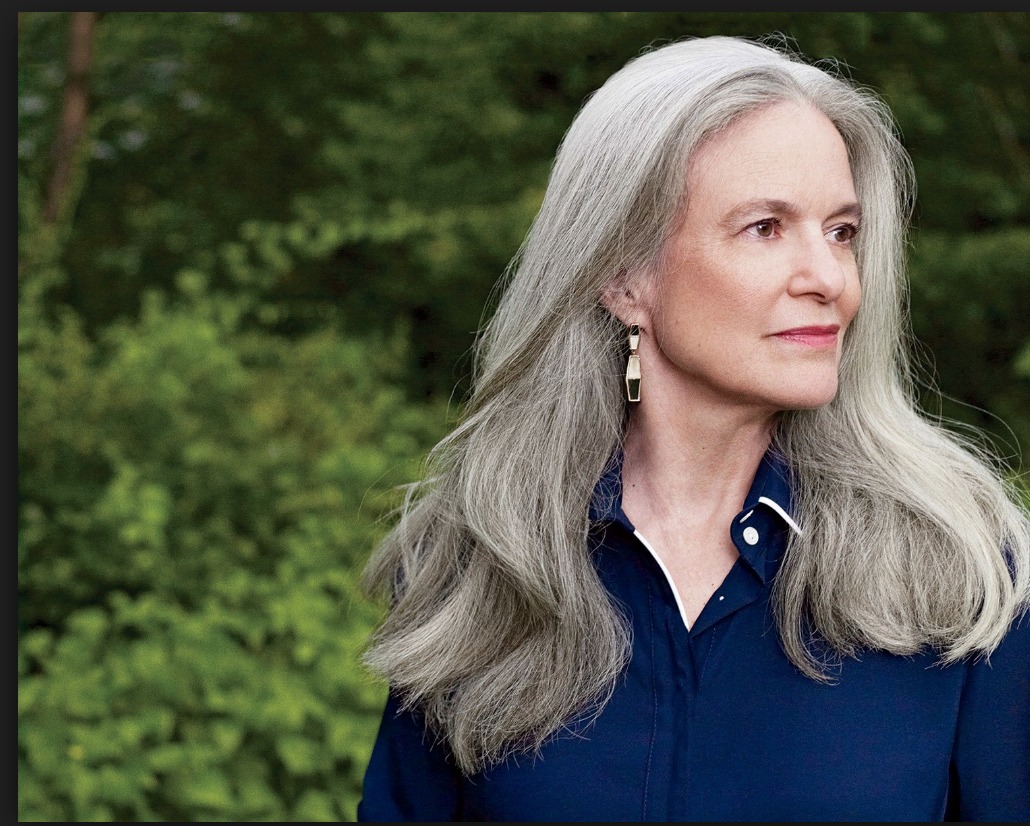
Sharon Olds is an American poet born 1942 in San Francisco. Educated at Stanford and Columbia Universities, she spent more than 40 years in New York.
Winner of several National awards, for her masterpiece, Stag’s Leap (the intimate story of her divorce after 32 years of marriage), she received the Pulitzer Prize in 2013.
Olds teaches in the Graduate Creative Writing Program at New York University. She lives in New Hampshire and in New York City.
Ironic, open-minded, direct in her writing, she engages the reader both intellectually and through the senses, all enhanced in her verses. Odes, published in 2016, it’s a great depiction of her sophisticated and diverse nature.
Quite youthful in her demeanour, her hair is still long and undyed at 70, she said in a recent interview that she never felt the pressure that many women do, to cut it short once she hit middle age: “Oh no, it’s like a shawl, a protection.”
Ilaria Boffa
Years Later
At first glance, there on the bench
where he’d agreed to meet, it didn’t seem to be
him—but then the face of grim
friendliness was my former husband’s,
like the face of a creature looking out
from inside its Knox. No fault, no knock,
clever nut of the hearing aid
hidden in the ear I do not feel I
love anymore, small bandage on the cheek
peopled with tiny lichen from a land I don’t
know. We walk. I had not remembered
how deep he held himself inside
himself—my fun, for thirty-two years,
to lure him out. I still kind of want to,
as if I see him as a being with a baby-paw
caught. His voice is the same—low,
still pushed around the level-bubble
in his throat. We talk of the kids, and it’s
as if that will never be taken from us.
But it feels as if he’s not here—
though he’s here, it feels as if, for me,
there’s no one there—as when he was with me
it seemed there was no one there for any other
woman. For the first thirty years. Now I see
I’ve been hoping, each time we meet, that he would praise me
for how well I took it, but it’s not to be.
Are you happy as you thought you’d be,
I ask. Yes. And his smile is touchingly
pleased. I thought you’d look happier,
I say, but after all, when I am
looking at you, you’re with me! We smile.
His eyes warm, a moment, with the accustomed
shift, as if he’s turning into
the species he was for those thirty years.
And turning back. I glance toward his torso
once, his legs—he’s like a stick figure,
now, the way, when I was with him, other
men seemed like Ken dolls, all clothes. Even
the gleam of his fresh wedding ring is no
blade to my rib—this is Married Ken. As I
walk him toward his street I joke, and for an instant
he’s alive toward me, a gem of sea of
pond in his eye. Then that retreat into himself,
which always moved me, as if there were
a sideways gravity, in him, toward some
vanishing point. And no, he does not
want to meet again, in a year—when we
part, it is with a dry bow
and Good-bye. And then there is the spring park,
damp as if freshly peeled, sweet
greenhouse, green cemetery with no
dead in it—except, in some shaded
woods, under some years of leaves and
rotted cones, the body of a warbler
like a whole note fallen from the sky—my old
love for him, like a songbird’s rib cage picked clean.
